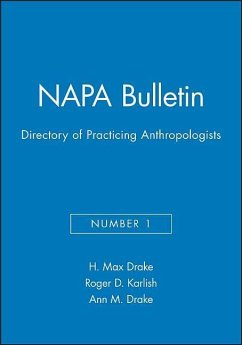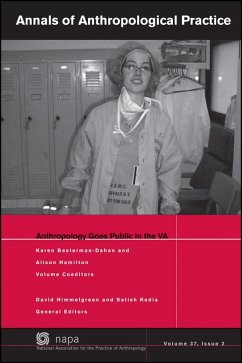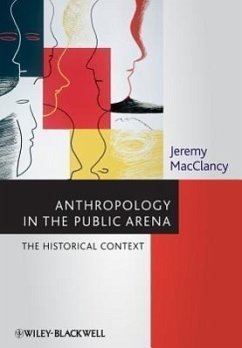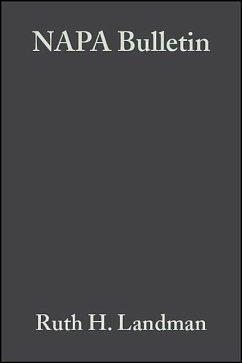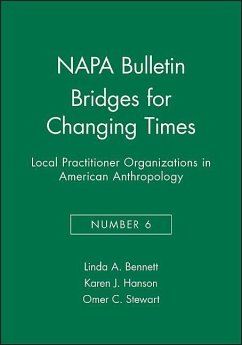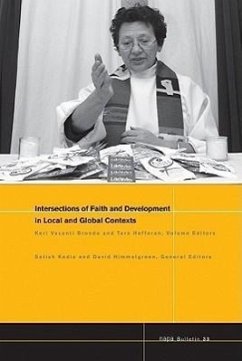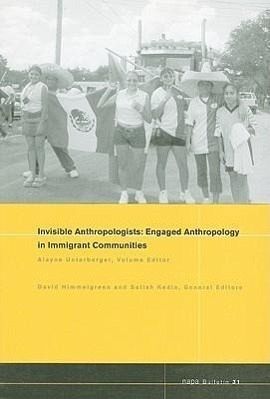
Invisible Anthropologists
Engaged Anthropology in Immigrant Communities
Herausgeber: Himmelgreen, David; Kedia, Satish
Versandkostenfrei!
Versandfertig in über 4 Wochen
30,99 €
inkl. MwSt.

PAYBACK Punkte
15 °P sammeln!
Anthropology is generally thought of as the study of exotic peoples in far-away lands. However, anthropologists have a long history of less exotic, applied "get-your-hands-dirty work." As a nation of immigrants, the United States has enjoyed a reputation as a model for democracy and a place where newcomers' dreams can come true. As such, this Bulletin could only have been written in the United States, home to so many immigrants from so many lands, who adapt in different and unique ways to form what we consider the nation. Comparatively little has been written about anthropologists engaged with...
Anthropology is generally thought of as the study of exotic peoples in far-away lands. However, anthropologists have a long history of less exotic, applied "get-your-hands-dirty work." As a nation of immigrants, the United States has enjoyed a reputation as a model for democracy and a place where newcomers' dreams can come true. As such, this Bulletin could only have been written in the United States, home to so many immigrants from so many lands, who adapt in different and unique ways to form what we consider the nation. Comparatively little has been written about anthropologists engaged with immigrant communities. In fact, it is somewhat shocking that anthropologists--and historians--seem to have forgotten to document this important contribution to the extent that we have documented our far-away travels and studies. This Bulletin is one such attempt. In it, we present a variety of perspectives, viewpoints, insights, and experiences of anthropologists who are actively engaged with immigrant communities across the United States, offering case studies from Florida, California, North Carolina, Texas, and Pennsylvania. Representing both university-based and NGO-based applied anthropologists, the authors discuss how deep, long-term engagement with immigrants has impacted our anthropological practice and how it in turn has shaped both theory and praxis. We share the personal and the professional, our challenges and our successes. The authors explore the nuances of our simultaneous, multiple roles vis-à-vis the immigrants themselves, the consequences of generational changes within our immigrant populations and how state policies, migration shifts and post-9/11 group responses have affected both our work and our multiple roles with communities. We present recommendations, lessons learned and future opportunities for U.S.-based anthropologists working with our unique brand of "exotic"--mainly Mexican and Latin American immigrants in 21st-century United States.



